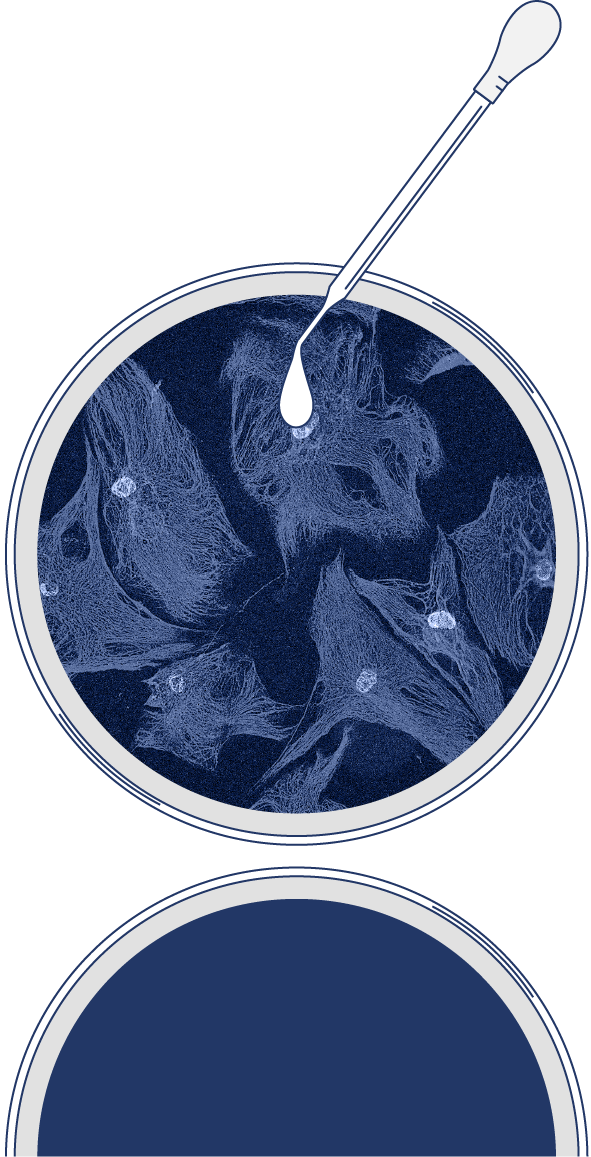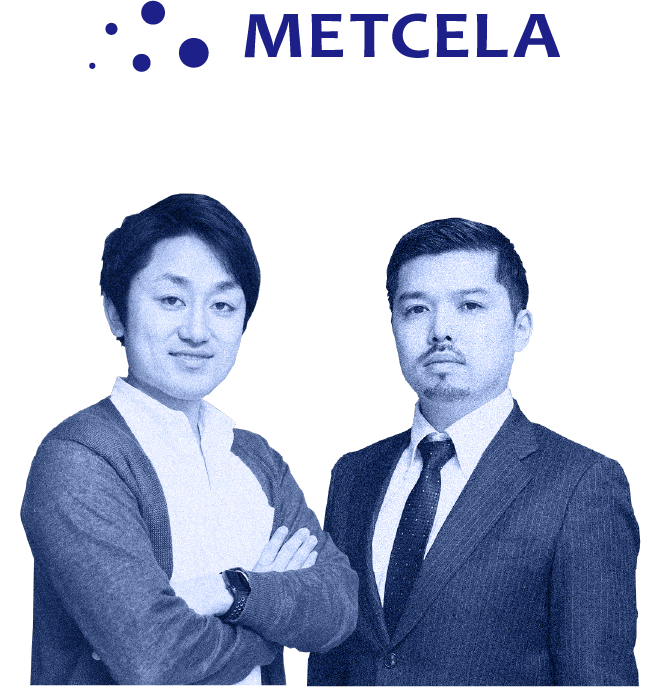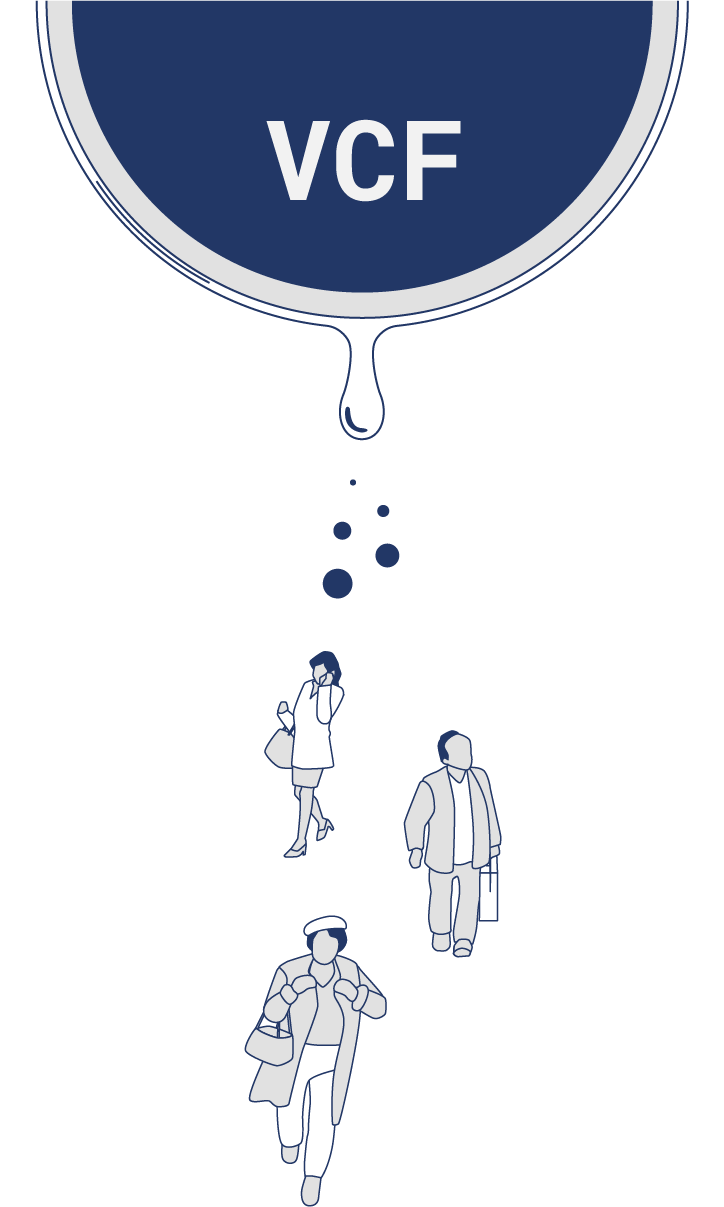TECHNOLOGY
Metcela’s Approach to Heart Failure Treatment

The damaged environment in which the surviving cardiac cells reside after myocardial infarction (MI) is quite different from that of the healthy heart tissue. By injecting VCAM-1-positive Cardiac Fibroblasts (VCFs), we aim to fundamentally alter this environment for the damaged cardiac cells to regenerate and thrive.
At Metcela, we are working on developing the world’s only autologous & homologous cell therapy as our lead pipeline. There are many benefits of using autologous & homologous cells to treat heart failure, such as improved efficacy with longer retention, a reduced inflammatory response, and capability to perform multiple administrations when needed.
About
Heart Failure
Heart failure is a condition in which the pumping function of the heart deteriorates due to a number of cardiovascular diseases including myocardial infarction, valve disorders, myocarditis, and other blood-pressure-related and kidney diseases. Symptoms of heart failure include chest pain, difficulty breathing and fatigue. There are limited fundamental treatments available for heart failure.
The most common treatment options are life-long drug administration and/or device treatment to alleviate the symptoms associated with heart failure. For more advanced patients, more invasive treatments such as the left ventricular assist device (LVAD) and heart transplant can be employed to replace the function of the heart.

- JAPAN
- 1.2Mpeople
- GLOBAL
- 26Mpeople
However, these treatment options are costly and invasive. The only curative and last resort option for heart failure is a heart transplant, but there is limited availability of donor hearts and require lifelong immunosuppression.
Globally, there are over 26 million patients suffering from heart failure (reference), yet there still is no definitive cure available. Thus, we believe that a new and novel treatment option for heart failure is in desperate need.

The Beginning of Metcela and Discovery of VCFs

VCAM-1-positive Cardiac Fibroblasts (VCFs) was originally discovered by Dr. Takahiro Iwamiya, one of our co-founders and co-CEOs. With extensive research experience on different types of fibroblasts, Dr. Iwamiya discovered that there were multiple subpopulations of cardiac fibroblasts, of which VCFs exhibited beneficial effects against heart failure. In conjunction with Kenichi Nogami, co-founder and co-CEO, they launched a team in 2014 and founded Metcela Inc. in early 2016 with a goal to bring this innovative technology to the market.
About VCF

So far, Metcela has discovered that VCFs have the ability to fundamentally change the microenvironment of the infarcted heart. VCFs release growth factors and cytokines to induce endogenous cardiomyocyte proliferation and lymphangiogenesis to improve the environment of the damaged heart.
When damages occur to tissues, the interstitial fluid balance can be disrupted, leading to edema and inflammation. Numerous studies have indicated that it is imperative to reduce edema to improve the overall microenvironment. From our in vivo work, we have discovered that VCF can induce lymphangiogenesis, the process of forming new lymphatic vessels, in the heart. New lymphatic vessels can drain and eliminate excess fluid, eliminating the edema.
Metcela has also demonstrated through in vitro and in vivo studies that VCFs can induce proliferation cardiomyocytes, which are known to be terminally differentiated cells and unable to proliferate. However, in the presence of VCFs, endogenous cardiomyocytes were observed to proliferate.
About MTC001
MTC001, the pipeline name for our lead candidate, consists of autologous VCFs and a precision delivery catheter for a minimally invasive procedure.
Metcela has co-developed a new catheter with Japan Lifeline Co., Ltd. (JLL), one of the leading catheter companies in Japan, to maximize the efficacy of VCFs. Catheter-based cell delivery allows for minimally invasive treatment, enabling reduced physical and financial patient burden, compared to open-chest heart surgery. With the advanced imaging technology, the catheter can precisely navigate and deliver VCF where they need to be in the heart, without having to perform an open-chest procedure.
Most allogeneic therapies, which use donor cells, require administration and careful monitoring of immunosuppressants to avoid cell rejection by the patient’s immune system. However, autologous therapies use cells that are derived directly from the patients (donor = recipient); therefore, there would be minimal concerns for immunological rejection during the treatment.
